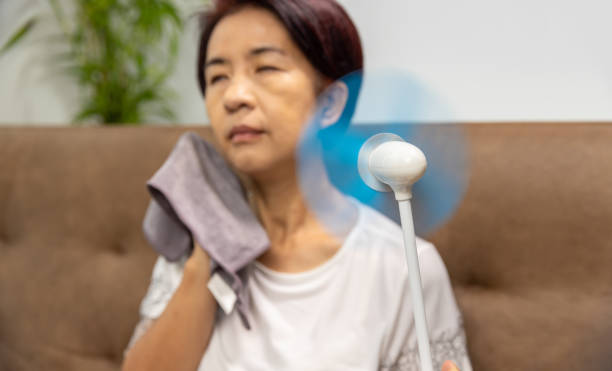Your menstruation and fertility years come to a close during menopause. The shift excites some women while displeasing others. But most women find the signals of menopause unpleasant, particularly as they relate to their mental well-being.
Menopause affects women uniquely mentally. Others experience mood swings, anxiety, and sadness, while some exhibit no symptoms. Hot flushes and irregular menstruation are already difficult for many women, and these signs can be terrifying and alarming.
Sadly, these hormonal alterations are a typical aspect of menopause. Let’s see what women experience during menopause and discuss other important factors.
What are the emotional impacts of menopause?

These are some of the critical emotional tolls undergone by women during perimenopause or menopause:
- Anxiety
- Tension
- Irritability
- Dearth of motivation
- Exhaustion
- Feelings of sadness
- Mood changes
- Focus difficulty
How can you manage menopause symptoms?
One of the best ways to manage menopause symptoms is to use probiotics during menopause. Probiotics might well reduce symptoms of menopause and control weight, but there is still debate about how beneficial they are. The symptoms and indications manifest during this change can vary depending on the individual. Some individuals may not experience symptoms, while others may only experience minor or serious symptoms.
Menopause symptoms may persist for a couple of years, and as they fade away, you might believe menopause is finally over. Nevertheless, transitioning into the postmenopausal state can increase health dangers like osteoporosis and cardiovascular disease.
Some studies say probiotics may ease such symptoms or lessen their intensity. These are the things you need to understand first:
Mood enhancement and improved sleep
It is believed that your neurological, immunological, and hormonal systems help your gut and brain interact with one another. Sometimes your temperament may be impacted by the kinds of good gut bacteria you have.
Menopause signs like mood swings, hot flashes, and excessive sweating can keep you up at night. Probiotic bacteria and sleep quality are strongly correlated in women who struggle with stress.
Night sweats and hot flushes

Your brain’s hypothalamus controls your endocrine system and your fundamental body temperature.
Your hypothalamus might perform differently due to the decrease in estrogen synthesis during menopause, which could cause vasomotor signs.
Vasomotor signs happen when the size of your blood vessels suddenly changes, raising the body’s temperature. Hot flashes and night perspiration are two symptoms that are frequently associated with this.
Taking probiotics along with supplements like red clover might help decrease vasomotor issues, per a small 2017 research involving 62 women. Isoflavone, an ingredient found in red clover, is a compound that functions likewise estrogen. Although red clover is advertised as an ingredient to lessen symptoms of menopause, its efficacy is still unknown.
Thankfully, you don’t have to put up with frequent and more intense flashes, erratic mood swings, or significant bouts of depression. Your menopausal symptoms are manageable with a variety of treatment choices. Contact your gynecologist if you have mood swings or other psychological issues during menopause or early menopause.
Published by Holr Magazine.


